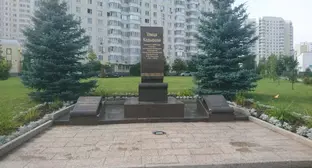11 March 2013, 09:00
Week in the Caucasus: review of main events of March 4-10
Murders of a federal judge, a teacher and a teacher and folk healer in Dagestan; announcement by the Audit Chamber of the Russian Federation of essential overrating of Olympic objects in Sochi; permit to 40 Georgian producers of mineral water, wine and cognac to enter the Russian market; granting political asylum in Finland to Polina Zherebtsova, author of the book about war in Chechnya; presentation of the study "What people think about Stalin in Russia and Transcaucasia", dated to 60years after deathof Joseph Stalin, – look these and other events in the Caucasus in the review of the week of March 4-10, 2013, prepared by the "Caucasian Knot".
Murders of judge, folk healer and teacher in Dagestan
In the evening on March 9, in the city of Izberbash, near his house, Akhmed Radjabov, a federal judge of the city, was shot dead. Investigators believe that the main reason of the attack has to do with the judge's service activities. Already on the following day, the investigatory bodies declared establishment of suspects of committing the crime; however, their names are not disclosed in the interests of the inquiry. It is known that one of them is a resident of Izberbash who had been earlier convicted by Radjabov and served his prison term.
On that very day, in the village of Kurakh, Kurakh District of Dagestan, in a private house, the dead body of Fazina Ibragimova, 62, a teacher of Russian, was found with a knife wound. Investigators are considering several motives of the murder, including the one associated with her professional activities, and another one, the so-called "murder on home soil".
On March 10, in Buinaksk, an identified criminal attacked and killed a folk healer Magomedrasul Kurbanov. The gunman came to his home as a visitor, shot at him several times and disappeared.
Audit Chamber of the Russian Federation claims essential overrating of Olympic objects in Sochi
The Russia's Audit Chamber has revealed an overrating of Olympic objects built in Sochi by 15.5 billion roubles. According to the Chamber, the cost of a number of Olympic objects, including the sledge-bobsleigh track and the Grand Ice Arena, was overestimated; and the project documentation on them received a negative conclusion of the state examination. It became known on March 6, when Sergey Stepashin, the head of the Chamber, presented his report for 2012 to the Council of Federation of the Russian Parliament. Later, the State Corporation "Olympstroy" denied the allegations of its involvement in overrating of Olympic objects and stated that all of them "have positive conclusions of the Chief State Examination."
Forty enterprises of Georgia-producers of mineral water, wine and cognac are admitted to Russian market
On March 6, the outcomes of the inspection trip became known of the experts of the "Rospotrebnadzor" (Russian Federal Agency for Consumer Supervision), who paid a visit to from February 25 to March 1 with the aim to inspect the enterprises, who had stated their readiness to import wines and mineral water to Russia; the import of them was banned in spring 2006 because of the claims of the "Rospotrebnadzor" against quality. As a result of the inspections, 37 Georgian enterprise, which produce alcoholic beverages, and 4 enterprises producing mineral water were allowed to submit documents for registration in Russia. According to Gennady Onischenko, the head of the Agency, the Georgian producers are allowed to present for registration about 200 wine brands, the Georgian cognac and the famous mineral water "Borjomi".
David Kirvalidze, Minister of Agriculture of Georgia, said on that very day that in the nearest future – on March 18 – they plan to start negotiations with the Russian party about restart of imports of Georgian vegetables, fruits and other agrarian products to the Russian Federation.
Polina Zherebtsova, author of a book on war in Chechnya, receives political asylum in Finland
On March 5, Polina Zherebtsova, the author of the diary about the Chechen war, published in autumn 2011, who left Russia together with her husband in 2012 because of threats addressed to her by unidentified persons and after several attacks, was granted a political asylum in Finland. On that very day, one of Russian publishers, which had planned to publish the diary this year, said that the book would not be published.
Results of the study "What people think about Stalin in Russia and Transcaucasia" announced by the 60th anniversary of Stalin's death
March 5 was 60 years after the death of Joseph Stalin. On that day, in Moscow, the grand hall of the Moscow Carnegie Centre (MCC) hosted a presentation of a study on the perception of Stalin in Russia and three countries of Southern Caucasus. The study "What people think about Stalin in Russia and Transcaucasia", the full text of which can be found also on the "Caucasian Knot", was conducted in Russia under the order of the Carnegie Foundation for International Peace by the Levada Centre, and in Caucasus – by the Caucasian Centre of Research Resources.
The authors of the report note that the positive attitude to Stalin is most often observed in Georgia, while among the Russian youth there are more and more indifferent. In Armenia, Azerbaijan, Georgia and Russia, Stalin remains an important symbolic figure, estimated oppositely at the same time. Citizens of Armenia, Georgia and Azerbaijan recognize Stalin's merits; and there share of those who positively assess his activities and personality is high; however, most of the respondents would not like to live under the Stalinist regime of ruling, the authors of the study have concluded.




